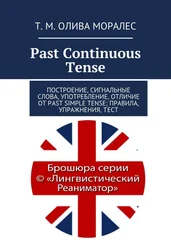John Matthews - Past Imperfect
Здесь есть возможность читать онлайн «John Matthews - Past Imperfect» весь текст электронной книги совершенно бесплатно (целиком полную версию без сокращений). В некоторых случаях можно слушать аудио, скачать через торрент в формате fb2 и присутствует краткое содержание. Жанр: Триллер, на английском языке. Описание произведения, (предисловие) а так же отзывы посетителей доступны на портале библиотеки ЛибКат.
- Название:Past Imperfect
- Автор:
- Жанр:
- Год:неизвестен
- ISBN:нет данных
- Рейтинг книги:4 / 5. Голосов: 1
-
Избранное:Добавить в избранное
- Отзывы:
-
Ваша оценка:
- 80
- 1
- 2
- 3
- 4
- 5
Past Imperfect: краткое содержание, описание и аннотация
Предлагаем к чтению аннотацию, описание, краткое содержание или предисловие (зависит от того, что написал сам автор книги «Past Imperfect»). Если вы не нашли необходимую информацию о книге — напишите в комментариях, мы постараемся отыскать её.
Past Imperfect — читать онлайн бесплатно полную книгу (весь текст) целиком
Ниже представлен текст книги, разбитый по страницам. Система сохранения места последней прочитанной страницы, позволяет с удобством читать онлайн бесплатно книгу «Past Imperfect», без необходимости каждый раз заново искать на чём Вы остановились. Поставьте закладку, и сможете в любой момент перейти на страницу, на которой закончили чтение.
Интервал:
Закладка:
As the debates and arguments for and against flowed, Duclos rode the waves. His role as rapporteur was to take an impartial stance, merely present the facts and the varying arguments clearly. Though he knew already what he wanted: rejection. At first a daunting if not seemingly impossible task. The EU Commission had already strongly backed a patents directive. The bill should sail through. If it didn't, it would be the first time a bill approved by the Commission at the plenary session was rejected by the Parliament. The whole conciliation process could be brought into question.
He’d pressed Bonoit for more information about the renewed investigation, but Bonoit knew little else; he promised to dig some more and Duclos should call him back in a couple of days. The waiting to know was killing Duclos, and now the tension of the current debate. Incredible that the years of blackmail had brought him to this: swinging a key debate. But with the size of the coup, this one was as much for himself as for Jaumard. His retirement fund.
No trace of concern hopefully showed now in his face, his hands pressed firm on his folder to control their trembling. Enigmatic geniality as he tackled the various questions. The strength of the Greens argument had laid a useful card in his hand.
Closing his presentation, Duclos provided a distilled summary of the arguments aired: a man whose cell line he claims is in itself unique. A laboratory claiming its three years of cell line development was the largest contributor to that uniqueness. 'But at what stage does research and industry expertise give the new claimant predominant rights?' Duclos paused for emphasis. 'Yes, research and industry does need due protection in order to flourish. And the ruling in America should provide strong pre-eminent guidance to the assembly in that respect. But the many controversial issues raised by that decision need also to be taken into account. With the main question now: can the assembly rest easy with such a ruling in Europe and discard the arguments against, based purely on the fact that industry requires due protection for its research? Furtherance of science or furtherance of the rights of the individual. Thank you.'
Duclos closed his folder. He was sweating profusely. Hopefully he'd struck the right tone without being too obvious, but he couldn't be sure. Reactions looked mixed. Nothing left now but to wait for the votes to come in.
Metz, April, 1995
Duclos never felt comfortable calling Marchand from either Strasbourg or Brussels, so invariably he would stop at a call box half way in between. He found one on a quiet road eight kilometres beyond Metz. Marchand answered almost immediately.
'What progress?' Duclos asked.
'The transfer was made three days ago. It should be in the account now.'
'Did you see the press coverage?'
'Yes, very encouraging. They were very pleased.'
To anyone listening in, a totally non-descript conversation, Duclos reflected. No names, no subject discussed. Only the two of them knew the gaps to be filled in: the EU Parliament had rejected the bio-technology patents directive. The Commission and industry lobby groups had cried 'outrage', and had started talking about tabling a new directive. But the present directive had already been five years in preparation; a new one, even if successful, could take up to three years.
A remarkable coup. Better even than they'd anticipated. They'd agreed a month's grace after the decision to let the dust settle, then the transfer would be made. Additional transfers would then follow for each successive year without a successfully approved bio-technology patents directive.
'Looks like we might be in for a good run on this one. Anything from two to four years,' Marchand commented.
'Let's hope so. I'll probably do some Christmas shopping in Geneva this year.'
'Yes, certainly. It would be nice to see you again.'
Probably not, thought Duclos. At their one meeting, he'd sensed that Marchand hadn't liked him, nor had he particularly liked Marchand. A Swiss based rather than Brussels lobbyist — to Duclos, Marchand typified the breed of self serving industry lawyers and lobbyists who constantly snapped at his and other politician's heels. In return lobbyists were often resentful that politicians hadn't dealt with their client's 'issue' effectively, labelling them incompetent at every turn. But the pecking order was always clear: politicians looking down, disdainfully; lobbyists looking up, resentfully.
Except that Duclos had broken from the mould, was a corrupt politician. One of the few Marchand felt he could look down upon. The air of mutual disdain could have been cut with a knife. The only common ground arose from the money they were both gaining though their association. Strange how money of that size created its own inertia, Duclos reflected: cut across most social divides.
Duclos shook off an involuntary shiver. Telephone boxes. The third in as many days. More information at last from Bonoit.
'Who's leading the enquiry?' Duclos asked anxiously.
'Corbeix. Aix-en-Provence based Chief Prosecutor.'
The name meant nothing to Duclos. 'What stage is the enquiry at?'
'As far as I know, just initial rogatoire generale.'
'Who's heading it?'
'There's two names: Malliene and Fornier. They've also been doing a lot of digging with pimps and gay establishments in Paris and Marseille for some reason.'
Duclos sensed the unspoken questions. 'Strange,' he commented. He felt his skin prickle. Fornier? The name rang a bell from somewhere, but he couldn't remember from where.
'What's going on, Alain? Bonoit sounded suddenly concerned. 'You know, I shouldn't even be phoning you like this. It's just that, well, in the past…'
'I know, and I appreciate it.' Was Bonoit fishing or seeking assurance? Duclos had given Bonoit strong support during his fledgling years with the Limoges prosecutor's office. Eagerness for Bonoit not to see his mentor's image shattered, or repayment of favours? 'It's nothing. I was questioned for something several years ago and cleared. They found and charged the real culprit. Sounds a bit like a political witch hunt to me — old enemies coming out of the woodwork. Probably this bio-tech dispute. Seems to have upset a lot of people. I'm not exactly flavour of the month right now.'
Bonoit muttered an agreement which hardly registered. Everything suddenly gelled for Duclos. Paris! His pulse started racing. He couldn't wait to get off the line and make another call.
He quickly thanked Bonoit, and Bonoit promised to call again if anything more came up. Duclos leafed through the back of his address book for the number. It took him a while to find it, he hadn't called the number for almost fifteen years. The digits were jumbled and out of sequence, with each set of two in reverse. A number from the past he had long forgotten and didn't think he would ever have to call again: a Marseille back street bar which would pass a message to Eugene Brossard.
Corbeix' body invariably told him it was time to go home an hour before twilight. As the effects of the steroids wore off, the cramps and muscle spasms returned to his legs. He'd been free from it for almost five days, then suddenly it had flared up again. About the time that Fornier had phoned to tell him all the coin leads had drawn a blank.
Fornier had put in a lot of work on the case. Fornier also seemed to be able to pull favours at short notice, getting half of an Interpol department to back up his frantic nationwide search. Nine people from thirty years ago traced in just three days. Corbeix was impressed. But despite Fornier's effort and ingenuity, in the end, nothing. To have lived with the case for so long, to get so close and then see it slip away. Cruel fate. Corbeix felt for Fornier.
Читать дальшеИнтервал:
Закладка:
Похожие книги на «Past Imperfect»
Представляем Вашему вниманию похожие книги на «Past Imperfect» списком для выбора. Мы отобрали схожую по названию и смыслу литературу в надежде предоставить читателям больше вариантов отыскать новые, интересные, ещё непрочитанные произведения.
Обсуждение, отзывы о книге «Past Imperfect» и просто собственные мнения читателей. Оставьте ваши комментарии, напишите, что Вы думаете о произведении, его смысле или главных героях. Укажите что конкретно понравилось, а что нет, и почему Вы так считаете.












